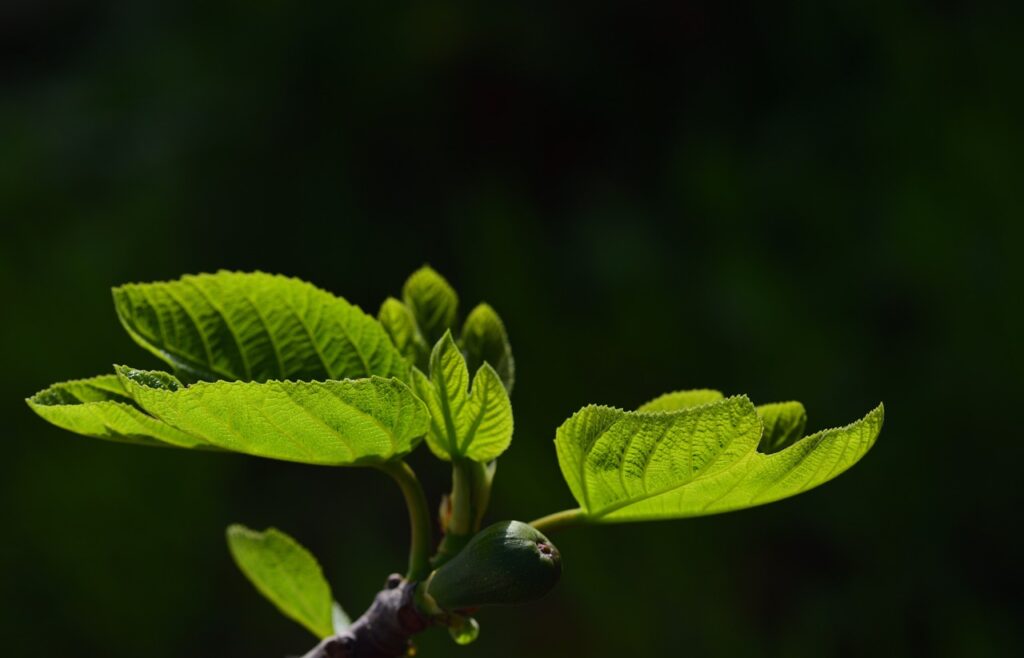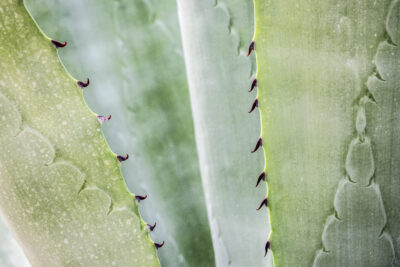
Fertilizing Succulents: To Do or Not in the Growing Season?

Succulents are a popular choice for plant enthusiasts due to their unique and striking appearance, as well as their ability to thrive in arid conditions. These plants have adapted to survive in environments with limited water availability by storing water in their leaves, stems, or roots. However, like all plants, succulents still require nutrients to grow and thrive. This raises the question: should succulents be fertilized during the growing season?
We will explore the topic of fertilizing succulents and whether or not it is necessary during their active growth period. We will discuss the basic nutritional needs of succulents, the potential benefits and drawbacks of fertilizing, as well as the different types of fertilizers that can be used. Additionally, we will provide some tips and guidelines for fertilizing succulents effectively and avoiding common mistakes that can harm these resilient plants. Whether you are a beginner succulent enthusiast or a seasoned gardener, this article will provide valuable insights into the proper care and maintenance of your succulents.
- Fertilizing succulents can promote healthy growth and flowering
- Fertilizing during the growing season can help replenish nutrients in the soil
- Use a balanced fertilizer specifically formulated for succulents
- Apply fertilizer sparingly to avoid overfeeding the plants
- Follow the recommended dosage and frequency on the fertilizer packaging
- Always water the succulents before applying fertilizer
- Avoid fertilizing during periods of dormancy or when the plants are stressed
- Monitor the plants for any signs of nutrient deficiency or excess
- Adjust the fertilizer application accordingly based on the plant's response
- Frequently Asked Questions
Fertilizing succulents can promote healthy growth and flowering
When it comes to caring for succulents, one question that often arises is whether or not to fertilize these plants during the growing season. Fertilizing succulents can indeed promote healthy growth and flowering, but it is important to do it correctly to avoid any potential harm.
Why fertilize succulents?
Succulents are known for their ability to store water in their leaves, stems, and roots. This adaptation allows them to survive in arid conditions where other plants may struggle. However, the limited nutrients available in their natural habitats can sometimes hinder their growth and flowering potential.
Fertilizing succulents can provide them with the necessary nutrients, such as nitrogen, phosphorus, and potassium, that may be lacking in their environment. This can help them thrive and produce vibrant foliage and flowers.
When to fertilize succulents?
The growing season for succulents typically begins in spring and extends through summer. This is the ideal time to fertilize them as they are actively growing and can make the most of the added nutrients.
 Troubleshooting Tips: How to Fix a Tall and Falling Over Succulent
Troubleshooting Tips: How to Fix a Tall and Falling Over SucculentIt is important to avoid fertilizing succulents during their dormant period, which usually occurs during fall and winter. During this time, succulents naturally slow down their growth and do not require as many nutrients. Fertilizing during dormancy can lead to over-fertilization and potentially harm the plants.
How to fertilize succulents?
When fertilizing succulents, it is essential to use a well-balanced, water-soluble fertilizer specifically formulated for succulents or cacti. These fertilizers usually have a higher ratio of phosphorus, which promotes flowering and root development.
It is crucial to dilute the fertilizer according to the instructions provided. Using a stronger concentration can burn the roots of succulents and cause irreversible damage. Remember, it is always better to under-fertilize than over-fertilize.
Frequency of fertilization
Succulents have a slower growth rate compared to other plants, so they do not require frequent fertilization. A general guideline is to fertilize succulents every four to six weeks during the growing season.
However, it is important to monitor the plants closely and adjust the frequency based on their response. If you notice signs of over-fertilization, such as burnt or discolored leaves, reduce the frequency of fertilization or dilute the fertilizer further.
Final thoughts
Fertilizing succulents can be beneficial in promoting their growth and flowering, but it should be done with caution. Remember to fertilize only during the growing season, use a well-balanced fertilizer specifically formulated for succulents, dilute it properly, and adjust the frequency based on the plant's needs.
By following these guidelines, you can ensure that your succulents receive the nutrients they need without causing any harm. Happy fertilizing and enjoy the beautiful growth and blooms of your succulent plants!
 Understanding Winter Leaf Drop: Why Do Succulent Leaves Fall Off?
Understanding Winter Leaf Drop: Why Do Succulent Leaves Fall Off?Fertilizing during the growing season can help replenish nutrients in the soil
Fertilizing succulents during the growing season can be a beneficial practice to ensure their optimal growth and health. Just like any other plants, succulents require essential nutrients to thrive, and fertilizers can help replenish these nutrients in the soil.
However, it is important to understand the specific needs of succulents before deciding to fertilize them. Succulents are known for their ability to store water in their leaves, stems, and roots, allowing them to withstand periods of drought. This unique characteristic also affects their nutrient requirements.
Understanding Succulent Nutrient Needs
Succulents have adapted to survive in nutrient-poor soils, which means they generally require less fertilizer compared to other plants. Over-fertilizing succulents can lead to issues like root burn, excessive growth, and weak stems. Therefore, it is crucial to strike the right balance when fertilizing succulents during the growing season.
One important nutrient for succulents is nitrogen, which promotes leaf growth and overall plant development. A balanced fertilizer with a lower nitrogen content is generally recommended to prevent excessive leaf growth that can make the plants top-heavy and prone to tipping over.
Phosphorous is another vital nutrient that supports root development and flowering in succulents. A fertilizer with a higher phosphorous content can be beneficial during the growing season to encourage strong root systems and enhance flower production.
Potassium is essential for succulents as it helps regulate water retention and improve disease resistance. A balanced fertilizer with a moderate potassium content can help maintain the overall health and vigor of succulents.
 Low-Maintenance Succulents That Mimic Cacti: A Guide to Easy Care
Low-Maintenance Succulents That Mimic Cacti: A Guide to Easy CareWhen and How to Fertilize Succulents
It is generally recommended to fertilize succulents during their active growing season, which is typically in the spring and summer months. During this time, succulents are actively absorbing nutrients and utilizing them for growth.
Before fertilizing, it is crucial to water the succulents thoroughly. This ensures that the soil is moist and ready to receive the nutrients from the fertilizer. Applying fertilizer to dry soil can lead to salt buildup, which can be harmful to succulents.
When applying fertilizer, it is advisable to dilute it to half or a quarter of the recommended strength. Succulents have lower nutrient requirements, and using a weaker solution helps prevent over-fertilization. Applying fertilizer every two to four weeks is generally sufficient during the growing season.
It is also important to avoid getting the fertilizer directly on the leaves or stems of the succulents, as it can cause burns or damage. Instead, aim to water the base of the plants, allowing the roots to absorb the nutrients.
The Bottom Line
Fertilizing succulents during the growing season can be beneficial to replenish essential nutrients in the soil and support their overall growth. However, it is important to understand the specific nutrient needs of succulents and avoid over-fertilizing. Balancing the nutrient content and applying fertilizer at the right time and in the appropriate manner will help ensure the health and vitality of your succulents.
Use a balanced fertilizer specifically formulated for succulents
Why use a balanced fertilizer?
When it comes to fertilizing succulents, using a balanced fertilizer specifically formulated for these plants is crucial. Succulents have unique nutrient requirements compared to other houseplants or garden plants. A balanced fertilizer ensures that your succulents receive the right amount of essential nutrients, promoting healthy growth and development.
 Proper Care and Maintenance of a Cat's Tail Succulent
Proper Care and Maintenance of a Cat's Tail SucculentWhat is a balanced fertilizer?
A balanced fertilizer contains a mix of essential nutrients, including nitrogen (N), phosphorus (P), and potassium (K), in equal or similar proportions. These nutrients are represented by the N-P-K ratio, which is indicated on the fertilizer packaging. For example, a balanced fertilizer may have an N-P-K ratio of 10-10-10 or 20-20-20. This balance is important because each nutrient plays a vital role in different aspects of succulent growth.
The benefits of using a balanced fertilizer for succulents
1. Promotes healthy growth: The balanced nutrient composition of a specialized succulent fertilizer provides the necessary elements for healthy root development, foliage growth, and flower production.
2. Prevents nutrient deficiencies: Succulents are prone to nutrient deficiencies, such as yellowing leaves or stunted growth. Using a balanced fertilizer ensures that your plants receive all the necessary nutrients, reducing the risk of deficiencies.
3. Avoids excessive growth: Succulents are known for their compact and slow-growing nature. Using a balanced fertilizer helps maintain the natural growth habit of succulents without encouraging excessive growth, which can make the plants susceptible to issues like weak stems or prone to pests.
How and when to fertilize succulents
1. Dilute the fertilizer: Succulents have a low nutrient requirement, so it's important to dilute the fertilizer to avoid overfeeding. Follow the instructions on the fertilizer packaging for the correct dilution ratio.
2. Apply during the growing season: The growing season for most succulents is in spring and summer when they are actively growing. Apply the diluted fertilizer once a month or every 6-8 weeks during this period.
3. Water before fertilizing: Before applying the fertilizer, make sure the soil is moist. This helps prevent any potential damage to the roots and ensures the nutrients are evenly distributed.
 Can Succulents Survive Winter Outdoors Without Protection?
Can Succulents Survive Winter Outdoors Without Protection?4. Avoid fertilizing dormant succulents: During the winter months or when succulents are in a dormant phase, it's best to avoid fertilizing as they require less nutrients during this time.
Using a balanced fertilizer specifically formulated for succulents is essential for their overall health and growth. It provides the necessary nutrients to support their unique needs and prevents nutrient deficiencies. Remember to dilute the fertilizer, apply it during the growing season, and avoid fertilizing dormant succulents. With proper fertilization, your succulents will thrive and continue to bring beauty to your indoor or outdoor space.
Apply fertilizer sparingly to avoid overfeeding the plants
When it comes to fertilizing succulents, there is an ongoing debate among gardeners. Some argue that succulents do not require fertilizer during the growing season, while others believe that a little extra boost can help them thrive. So, should you fertilize your succulents in the growing season? The answer is not a simple yes or no, but rather a matter of understanding the needs of your specific succulent species.
Understanding the Nutritional Needs of Succulents
Succulents are known for their ability to store water in their leaves, stems, and roots, which allows them to survive in arid and dry conditions. This unique adaptation also affects their nutritional needs. Succulents have evolved to be efficient at extracting nutrients from the limited resources available in their natural habitats. As a result, they do not require as much fertilizer as other types of plants.
However, this does not mean that succulents should never be fertilized. While they can survive without additional nutrients, a balanced fertilizer can provide them with the extra boost they need to grow and thrive. Fertilizing succulents can help promote healthy foliage, vibrant blooms, and overall plant vigor.
Choosing the Right Fertilizer
When selecting a fertilizer for your succulents, it is important to choose one that is specifically formulated for these types of plants. Look for a balanced fertilizer with a low nitrogen content. Nitrogen promotes leafy growth, which can make succulents more susceptible to rot and disease. Instead, opt for a fertilizer with higher phosphorus and potassium levels, as these nutrients support root development, flowering, and overall plant health.
How Often to Fertilize
While succulents do benefit from occasional fertilization, it is important to apply the fertilizer sparingly to avoid overfeeding the plants. A general rule of thumb is to fertilize succulents every four to six weeks during the growing season, which typically spans from spring to early fall. However, keep in mind that every succulent species is different, so it is essential to research the specific needs of your plants.
 Is My Succulent Dying If All The Leaves Have Fallen Off?
Is My Succulent Dying If All The Leaves Have Fallen Off?Applying Fertilizer Correctly
When applying fertilizer to succulents, it is crucial to follow the instructions on the packaging. Dilute the fertilizer to half or a quarter of the recommended strength to prevent burning the roots. Additionally, it is best to apply the fertilizer to damp soil to ensure proper absorption. Avoid getting the fertilizer on the leaves as it can cause damage.
Conclusion: Fertilizing succulents during the growing season can be beneficial if done correctly. Understanding the nutritional needs of succulents, choosing the right fertilizer, fertilizing sparingly, and applying it correctly are key factors to ensure the health and vitality of your succulent plants.
Follow the recommended dosage and frequency on the fertilizer packaging
When it comes to fertilizing succulents during the growing season, it's important to follow the recommended dosage and frequency as stated on the fertilizer packaging. This ensures that you provide your succulents with the right amount of nutrients without overdoing it, which can be detrimental to their health.
Always water the succulents before applying fertilizer
When it comes to caring for succulents, one of the most common questions that arise is whether or not to fertilize them during the growing season. Some succulent enthusiasts argue that fertilizing is essential for promoting growth and ensuring healthy plants, while others believe that succulents thrive best without any additional nutrients. So, should you fertilize your succulents during the growing season? Let's find out.
The importance of watering before fertilizing
Before you even consider applying fertilizer to your succulents, it is crucial to ensure that they are well-hydrated. Succulents have unique watering requirements, as they are adapted to survive in arid environments. Therefore, it is recommended to water your succulents thoroughly a day or two before applying any fertilizer.
Watering your succulents before fertilizing serves two purposes. First, it helps flush out any accumulated salts or mineral deposits from the soil, which can be harmful to your plants if left unchecked. Second, it ensures that the succulents' roots are adequately hydrated, allowing them to absorb the nutrients from the fertilizer more effectively.
 Care Guide for Small Potted Succulents: Low-Maintenance Beauty
Care Guide for Small Potted Succulents: Low-Maintenance BeautyThe benefits of fertilizing succulents
While succulents can survive in nutrient-poor soils, fertilizing during the growing season can provide some benefits. Fertilizers are formulated to provide essential nutrients that may be lacking in the soil, such as nitrogen, phosphorus, and potassium.
When used correctly, fertilizers can promote robust growth, vibrant colors, and overall plant health. They can also help succulents recover from stress, such as damage caused by pests or extreme weather conditions.
Choosing the right fertilizer
When selecting a fertilizer for your succulents, it is essential to choose one that is specifically formulated for these types of plants. Succulents have different nutritional needs compared to other houseplants, and using the wrong fertilizer can do more harm than good.
Opt for a balanced fertilizer with a ratio of N-P-K (nitrogen, phosphorus, and potassium) that is lower in nitrogen and higher in phosphorus and potassium. This nutrient composition supports root development, flowering, and overall succulent growth.
How often should you fertilize?
The frequency of fertilizing your succulents depends on various factors, such as the type of fertilizer used, the growing conditions, and the specific succulent species. As a general guideline, it is recommended to fertilize succulents once every two to four weeks during the growing season.
However, it is crucial to monitor your plants closely and adjust the frequency accordingly. Over-fertilizing can lead to nutrient burn, which manifests as brown or yellow spots on the leaves. Under-fertilizing, on the other hand, may result in stunted growth or pale colors.
Fertilizing succulents during the growing season can be beneficial for their overall health and growth. However, it is essential to water your succulents adequately before applying any fertilizer and choose a fertilizer specifically formulated for succulents. Remember to monitor your plants closely and adjust the frequency of fertilization as needed. With the right care and attention, your succulents will thrive and bring you joy for years to come.
 The Ultimate Succulent Dormancy Table: Your Best Resource!
The Ultimate Succulent Dormancy Table: Your Best Resource!Avoid fertilizing during periods of dormancy or when the plants are stressed
When it comes to fertilizing succulents, it's important to be mindful of the right timing. Succulents have unique growth patterns and requirements, and fertilizing them during the wrong time can do more harm than good.
Periods of dormancy: Succulents typically have periods of dormancy, usually during the winter months. During this time, their growth slows down, and they require less water and nutrients. It is best to avoid fertilizing your succulents during their dormant period, as they won't be able to efficiently absorb and utilize the nutrients. Instead, focus on providing them with the appropriate amount of light and water to support their dormant state.
Stressed plants: Succulents can become stressed due to various factors such as overwatering, underwatering, extreme temperatures, or pest infestations. When a succulent is stressed, its focus shifts towards survival rather than growth. Fertilizing stressed succulents can further burden their already compromised systems and worsen their condition. It is crucial to address the underlying stress factors first and allow the plant to recover before considering fertilization.
So, when is the ideal time to fertilize your succulents? The growing season is the optimal time to provide them with nutrients that support their active growth. Typically, the growing season for succulents falls during the spring and summer months when the days are longer, and the sunlight is abundant. During this period, succulents are actively growing and will benefit from a balanced fertilizer specifically formulated for succulent plants.
Monitor the plants for any signs of nutrient deficiency or excess
When it comes to fertilizing succulents, it is crucial to monitor the plants for any signs of nutrient deficiency or excess. Succulents have specific needs, and providing them with the right balance of nutrients is essential for their growth and overall health.
One way to determine if your succulents need fertilization is by observing their appearance. If you notice pale or yellowing leaves, stunted growth, or weak stems, it may indicate a nutrient deficiency. On the other hand, if you see dark, burnt, or discolored leaves, it could be a sign of nutrient excess.
 Reviving Sun-Stressed Succulents: Tips and Tricks for Success
Reviving Sun-Stressed Succulents: Tips and Tricks for SuccessTo accurately assess the nutrient levels in your succulents' soil, you can conduct a soil test. This test will help you determine the deficiencies or excesses of various nutrients such as nitrogen, phosphorus, and potassium. It is essential to understand the specific nutrient requirements of your succulents to provide them with the necessary amendments.
Consider the growing season and the needs of your succulents
The growing season plays a vital role in deciding whether or not to fertilize your succulents. Generally, succulents require less fertilization during their dormant period, which is typically in winter. During this time, their growth slows down, and they rely on stored nutrients within their leaves and stems.
On the other hand, when succulents enter their active growing season, usually in spring and summer, they require more nutrients to support their rapid growth. Fertilizing during this period can provide the necessary boost for healthy foliage, robust root development, and vibrant blooms.
However, it is important to note that succulents are generally low-maintenance plants and can thrive without frequent fertilization. Over-fertilization can lead to salt build-up in the soil, causing root burn and other detrimental effects. Therefore, it is crucial to strike a balance and avoid excessive fertilization.
Choose the right fertilizer and application method
When selecting a fertilizer for your succulents, it is best to opt for a balanced, water-soluble fertilizer specifically formulated for cacti and succulents. These fertilizers are typically low in nitrogen and high in phosphorus and potassium, which are essential for promoting healthy root growth and flowering.
It is recommended to dilute the fertilizer to half the strength indicated on the packaging. Succulents prefer a more diluted solution to reduce the risk of burning their roots. Applying the fertilizer once every two to four weeks during the growing season is generally adequate.
When applying the fertilizer, ensure that the soil is moist before adding it. Water the plant thoroughly after applying the fertilizer to help distribute the nutrients evenly and prevent any potential salt accumulation.
 Tips to Help Your Succulent Leaves Perk Up and Point Upwards
Tips to Help Your Succulent Leaves Perk Up and Point Upwards- Top-dressing: Sprinkle the diluted fertilizer on the soil surface, avoiding direct contact with the leaves and stem. Gently work the fertilizer into the top layer of soil using a small hand rake or your fingers.
- Foliar feeding: For a more targeted approach, you can spray a diluted fertilizer solution directly onto the leaves of your succulents. This method allows the plants to absorb the nutrients through their foliage.
Remember, fertilizing succulents should be done in moderation, taking into consideration their specific needs and the growing season. With proper care and occasional fertilization, your succulents will thrive and bring you joy with their stunning beauty.
Adjust the fertilizer application accordingly based on the plant's response
When it comes to fertilizing succulents, it's important to understand that their needs may vary depending on the growing season and the specific plant species. While some succulents may benefit from regular fertilization during the growing season, others may not require it at all.
It's crucial to observe how your succulents are responding to the current fertilization routine. If you notice signs of over-fertilization, such as burnt or discolored leaves, it may be necessary to adjust the application. On the other hand, if your succulents seem to be lacking nutrients, you may need to increase the frequency or concentration of the fertilizer.
Factors to consider
- Plant species: Different succulent species have varying nutrient requirements. Some are more demanding, while others are more resilient and can thrive with minimal fertilization.
- Growing season: Succulents typically have a dormant period during winter when their growth slows down. During this time, they may not require as much fertilizer as they would in the active growing season.
- Soil quality: The nutrient content of the soil can also influence the need for additional fertilization. If you have well-draining soil that is rich in organic matter, your succulents may already be receiving sufficient nutrients.
- Container size: Succulents grown in small containers can deplete nutrients more quickly, requiring more frequent fertilization compared to those planted in larger pots or in the ground.
Types of fertilizers
When choosing a fertilizer for your succulents, opt for a balanced, water-soluble formula specifically formulated for cacti and succulents. These fertilizers typically have higher concentrations of phosphorus and potassium, which promote root development and flowering.
Alternatively, you can also consider using organic fertilizers, such as compost or worm castings, which provide slow-release nutrients over time. Organic fertilizers can be gentler on succulents and help improve soil structure and fertility.
Fertilizing tips
- Follow the instructions: Always read the instructions provided by the fertilizer manufacturer to determine the appropriate application rate and frequency.
- Water before fertilizing: It's advisable to water your succulents thoroughly before applying fertilizer to prevent potential root burn.
- Dilute the fertilizer: For water-soluble fertilizers, it's essential to dilute them according to the package instructions. Applying concentrated fertilizer directly to succulents can lead to nutrient overdose.
- Apply during active growth: Fertilize your succulents only during their active growing season, typically in spring and summer. Avoid fertilizing during the dormant period.
- Monitor the plants: Regularly inspect your succulents for any signs of nutrient deficiencies or excesses. Adjust the fertilization routine accordingly based on their response.
Remember, every succulent is unique, and finding the right fertilization approach may require some trial and error. By considering the factors mentioned above and closely monitoring your plants, you can ensure that your succulents receive the necessary nutrients for healthy growth.
Frequently Asked Questions
1. Should I fertilize my succulents during the growing season?
Yes, it is recommended to fertilize succulents during the growing season to provide them with essential nutrients for healthy growth.
2. What type of fertilizer is best for succulents?
A balanced, water-soluble fertilizer with a low nitrogen content is ideal for succulents. Look for a fertilizer specifically formulated for cacti and succulents.
3. How often should I fertilize my succulents?
During the growing season, fertilize your succulents every 2-4 weeks. However, it is important to follow the specific instructions provided by the fertilizer manufacturer.
4. Can I use compost or organic fertilizers for my succulents?
Yes, you can use compost or organic fertilizers for your succulents. However, make sure to use them sparingly and dilute them properly to avoid over-fertilization, which can be detrimental to succulents.
If you want to read more articles similar to Fertilizing Succulents: To Do or Not in the Growing Season?, you can visit the Care and Maintenance category.






You Must Read